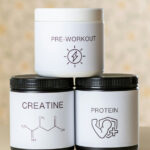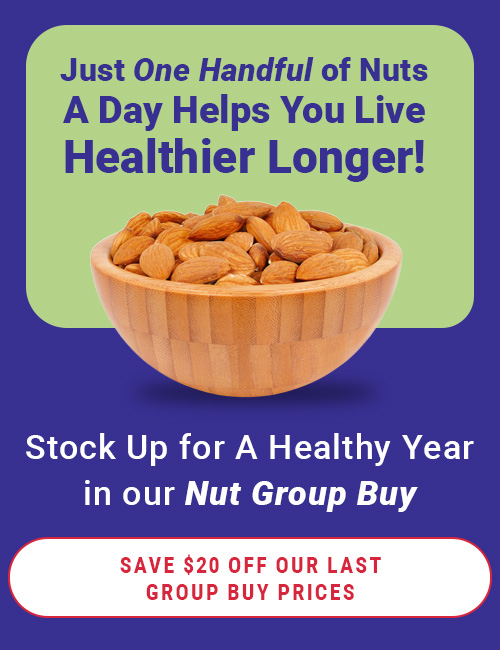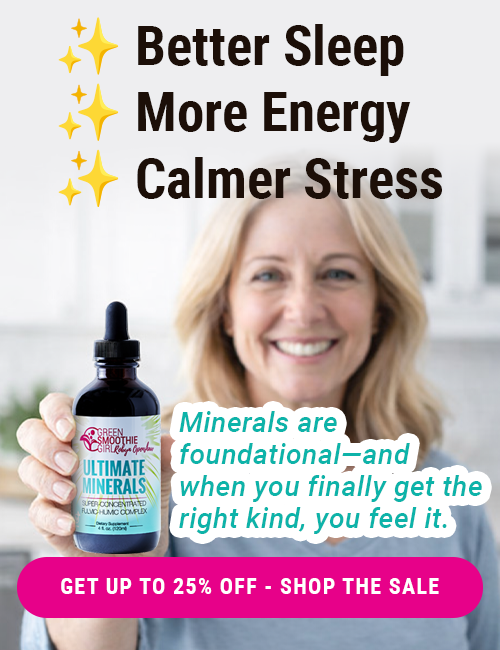Combating Depression Holistically
Curing Depression Naturally
My friend Shari called me last week. “Guess what. My friend Emily was totally normal, and has been in mental hospitals for 12 years now. They found out a few months ago that it was the MEDS they started her on that made her crazy. She’s been off them for two months and she’s just FINE.”
What a tragedy. Shari continues, ”Twelve years ago, she had two men who wanted to marry her. College-bound. Totally normal. She had everything going for her. But they put her on one drug after another and she was suicidal and psychotic.”
I’m a former mental health professional and have a master’s degree in social work. So let me make this disclaimer: you don’t want to go off your psychotropic drugs without careful supervision. Emily’s experience is not everyone’s experience. I bet her getting off those drugs was careful and gradual. Psychotropics are no laughing matter, and the transition ON or OFF can be scary.
Some of them are class C narcotics, and others are narcotic central nervous system depressants. SSRI’s, the most commonly prescribed, cause sexual dysfunction, increased risk of bone fractures, drowsiness, nausea, weight loss or gain, renal impairment, suicidal thoughts, and 15 other symptoms. And, two meta-analyses of dozens of clinical trials (2008, 2010) for those drugs did not meet the criteria for a “clinically significant effect.”
For people upside down in a mental health crisis, a drug may be a lifesaver. People who want to kill themselves don’t have the wherewithal to sit down and problem-solve the actual life circumstances that seem overwhelming, let alone make major dietary and lifestyle changes.
But is the prescription a lifelong crutch, rather than a temporary sanity-saving measure while you figure out the actual PROBLEM and solve it? That I have an issue with. I know plenty of people who have been on psychotropics for a decade with no effort by them or their doc to solve the problems.
I also take issue with the dispense-it-for-every-little-complaint M.O. of too many docs. It should be a temporary, desperate act, putting someone on these hard-core drugs, while the doc helps get at the core causation. Not a first line of defense at the first sign of trouble!
The following discussion are my thoughts and should not be construed as medical advice. Please see your qualified practitioner for individualized help with depression or anxiety.
Mental health has its roots in biochemistry. And food is the fuel of our biochemistry, of course, causing it stability or instability. Does it not, then, make sense, that food can play a major role in good mental health?
It certainly has, in mine. I was born anxious. Oldest child. Type A. Red personality. Overachieving stereotype. All that stuff. As a small child, I had stressed- out, sobbing meltdowns if I got a B on my report card or made a mistake in a piano performance. If I let someone down, or if someone didn’t like me.
I have struggled with anxiety my whole life. It is completely managed and no longer costs me sleep or causes any trouble. The past 10 years, it is where I want it. It is a good thing, when it is managed. That is: it fuels my constant drive to build things, learn and grow, help good causes, and GO-GO-GO. My anxiety no longer makes me cry or wrecks my well-being.
The only exception, before I QUIT COLD TURKEY, used to be when I’d eat sugar, or especially corn syrup. Eating something with HFCS in it sets me back for days—I wake up having panic attacks for 5 days after eating a handful of Junior Mints!
Why? Because sugar burns out adrenal glands, and virtually everyone living in the modern age has heavily taxed adrenal glands even WITHOUT sugar.
So let’s talk about things you can do, nutritionally, if you suffer with depression or anxiety:
1. Are you getting enough greens? They contain the most bioavailable minerals of all foods. Bioavailable refers how much of the nutrient is actually utilized by your body, as opposed to how much of that nutrient is in the food. (For instance, dairy milk is high in calcium. But human beings use very little of it, and the milk from cows causes other problems; for instance, it causes the human body to produce mucous. For baby cows, the calcium in their mothers’ milk is VERY bioavailable.)
Living green foods have to be plentiful in the human diet. Our digestive tracts, the way they’re built, demand lots of plant food. And all the nutrients in greens are highly bioavailable to humans. Cows, too, it turns out. Jordan Rubin is raising “green cows,” who not only eat only organic plant food, but eat GREENS rather than grains and other weird additives to increase weight that the big farms are now feeding dairy and slaughter cattle. Greens are what cows in nature eat, and the quality of the cows’ milk changes radically when they’re fed something else. Even organic dairy ranchers aren’t going to the length that Rubin is, to create a food supply that our grandparents took for granted, before we morphed our food supply chain into a Frankenstein-ish disaster.
In my research published in The Green Smoothies Diet, half of my 175 respondents said green smoothies alone improved the stability of their mood.
2. Are you eating 60-80% raw or better? I am not convinced that 100% raw is necessary or even ideal, but a diet high in unprocessed, raw foods gives you enzymes that take little away from your higher functions so that you can achieve truly transcendent states, like peace, happiness, harmony in relationships, and self-actualization.
At our house, we eat cooked soups made with vegetables, legumes, nuts and seeds, in addition to lots of raw in the form of green smoothies, vegetable juice, salads, and just snacking on carrots, bell peppers, etc.
I love raw food and EVERY meal or snack around here is 60-80% raw. Count it in the bulk of the food, or count it in calories, I don’t care—but eat a primarily raw, plant-based diet. But humans have rarely eaten “all raw,” and legumes and whole grains are good food and very difficult to eat much of, unless they’re cooked. It’s a natural human tendency to want their food hot, now and then.
I’m not absolutely convinced that eating organic, wild-caught, or free-range meat is all bad, as a smaller part of the diet. I don’t personally want those things, or prepare and serve them in my home.
And when the economy falls out—which it will, since it’s mathematically unsustainable that we continue forever the way we’re going—and you have to pay $40/lb. for your meat, what will you eat? Best to just learn to eat like that anyway. The U.S. government massively props up meat and dairy. It doesn’t prop up vegetable, fruit, and legume crops. Obviously we’re paying less than we should for beef, if it takes 20 lbs. of plant food to yield 1 lb. of beef.
3. If you ARE eating meat, please ensure it is wild-caught fish from clean waters (not farmed, and not caught in dirty places like, no offense my Michiganian friends, the Great Lakes). Or range-free, organic chicken or turkey. Or grass-fed, organic beef. NEVER processed meat or dairy – it’s full of hormones. It surely has the potential to affect mood disorders.
4. Are you staying out of the drive-thru? Virtually everything sold there puts you at high risk for depression. Even the toxic dressings on the low-nutrition salads. Not only because of low nutrition, high calorie foods, with their cascading effects, but also the fact that they are denatured and your body has to work excessively to digest them. This takes away from higher functions, like neurological function, and results in a far higher likelihood that your brain and spirit are brought low, too, even as their host, the physical tabernacle, is forced to struggle and toil. Possibly the worst thing coming out of the drive-thru are toxic, heavy fats, which are difficult to metabolize, in some cases impossible to metabolize, and cause cell damage.
5. High-fructose corn syrup has to go. I noticed that any HFCS, such as found in candy, drinks, and cheap processed food, caused me anxiety for several days after I ate it. In a few times in my life, when life circumstances were taxing my coping abilities, bad nutrition even contributed to brief, dark depressions.
No treat is worth that. I have studiously avoided HFCS for years. Refined sugar is terrible for anyone with a tendency towards mood disorders, but HFCS is the very worst. Most packaged drinks and candy have HFCS as a main ingredient. It’s in many breads, condiments, soups, and cereals, too. Not only does it create a heavy drain on your pancreas and liver, causing your insulin to go haywire and your triglycerides to skyrocket, but it is virtually always genetically modified, too. Over time, you will also pay the price in your gut health if you eat products containing HFCS.
6. Are you getting enough essential fatty acids? 80 percent of Americans are deficient in Omega 3. Many studies link deficiency to depression, since you must have Omega 3 to break down and transmit serotonin, epinephrine, and dopamine.
And it’s not just the quantity of Omega 3 that is the problem. It’s the excesses of Omega 6, probably largely because of consumption of refined oils (anyone eating fried foods, chips, etc.), which are high in 6.
To get control of this balance, eliminating toxic refined oil in your diet has to be part of the solution.
The other part is to get 2-3 Tbsp. of chia, flax, and / or hemp seed in your daily diet. I highly recommend putting any of our three varieties of our SPROUTED flax products in your green smoothie every day. (I pulse 1-2 Tbsp. of chia seed into my Hot Pink smoothie every morning.)
Use 1 Tbsp. chia seed soaked in 3 Tbsp. of water as an egg replacer in a baking recipe. Or make chia pudding.
You can drink 1 Tbsp. chia in a glass of water as an appetite suppressant, if eating later at night is a problem for you. Then, you’re covering your Omega 3 need at the same time. Chia has a phenomenal nutritional profile, in addition to the Omegas—lots of calcium, iron, Vitamin C, and protein.
7. Is your weight in the “ideal” range? Even ten pounds of extra weight, studies show, can dramatically affect not only feelings of self-worth, but also lightness of mood. Chronically heavy mood is not a natural state, to be accepted over time as simply a part of your personality. It is a problem as biological in nature as multiple sclerosis or asthma are.
Extra weight heavily taxes the endocrine system (hormones), and imbalances of hormones cause depressed feelings—which make it hard to problem-solve life circumstances. And those things contribute to more weight gain—so it’s a vicious cycle! Of course the last 10 lbs. are the most stubborn, but the clear path to getting rid of them is to eliminate white flour and sugar.
You will not miss them like you think you will. I immediately signed on for a second year of my $10,000 no-sugar bet, because when $10k is at stake, I don’t fret over whether to eat the brownie or not. I think about other, more interesting things, like enjoying my friends at the party.
8. If you are taking SSRI’s or other drugs, consult your doctor before adding any natural, adjunct therapies, because adverse reactions can occur when using both Prozac (for instance) and herbal treatments. The following are the most well-known and well-studied herbs for depression and anxiety:
St. Johns Wort is helpful for depression, with at least 10 active constituents involved in that intervention, especially hypericin and pseudohypericin. It apparently works in part by increasing the activity of neurotransmitters like serotonin and norepinephrine. Drugs do not operate by utilizing metabolic pathways.
Kava is the most-studied as being efficacious for anxiety and insomnia. Kava affects a GABA-receptor-binding capacity and blocks norepinephrine uptake. One study in Germany found it to have effects equal to benzodiazepines, but without side effects.
Other supplements include L-tryptophan, currently banned in the U.S. due to an incidence of contamination. But 5-hydroxytryptamine (5-HTP) might be more effective anyway, as it is apparently more bioavailable and doesn’t compete with other amino acids in the body.
Its function is to increase beta-endorphins, your “feel-good” hormones. A typical dose is 200 mg per day, and this supplement can be found online or in health food stores.
To your (mental) health!














